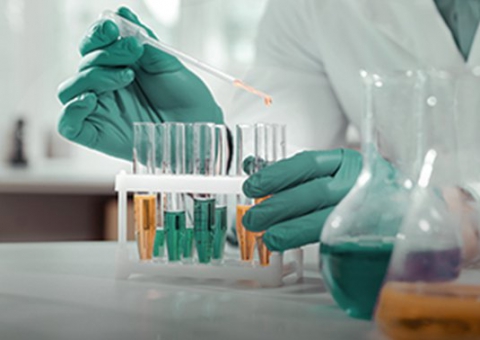Antrodia cinnamomea
22
2023
Sep
Food News Magazine 302: The Great Leap Forward in Taiwan's Antrodia cinnamomea Industry! Taiwanese Native Antrodia cinnamomea Mycelium Secures US NDI Certification
Author: Deyi Yao
Introduction
Antrodia cinnamomea, a native red fungus in Taiwan, has been extensively studied in medical research. It has been proven to have effects such as improving liver function, alleviating hangovers, and enhancing immunity. It is widely acclaimed as the "national treasure of Taiwan." During the thriving period of the Antrodia cinnamomea health supplement market, its price even surpassed that of gold. Incidents of stealing Cinnamomum kanehirae Hayata became commonplace, prompting various Taiwanese businesses to develop sustainable cultivation methods. However, due to the unique nature of Antrodia cinnamomea as a species native to Taiwan, it lacks an established history of consumption in other countries. Exporting to European and American countries has always encountered regulatory hurdles. Now, with the recent announcement by the U.S. Food and Drug Administration (FDA), a Taiwanese manufacturer's Antrodia cinnamomea mycelium has received an "unreserved opinion" in the safety assessment of New Dietary Ingredients (NDI) (1). This signifies that Taiwan's pride has passed international safety standards and can now align with the global market.
The History and Evolution of Consuming Antrodia Cinnamomea
Antrodia cinnamomea is a parasitic fungus found on the unique species of Cinnamomum kanehirae Hayata, commonly known as the bull camphor tree. This large evergreen broad-leaved tree is exclusive to Taiwan and is typically found in broadleaf forests at altitudes ranging from 200 to 2000 meters (2). It is valued for producing high-quality materials used in the crafting of furnitures. Due to its relative rarity in the natural world, the government has designated the bull camphor tree as a protected species, prohibiting its logging in forests.
In Taiwan, Antrodia cinnamomea is also known by various names such as camphor fungus, bull camphor mushroom, camphor mushroom, red camphor fungus, and the complementary pair mushroom. It has been passed down through generations among the indigenous peoples of Taiwan as a traditional folk remedy. While it is known that Taiwan's indigenous peoples have been using Antrodia cinnamomea since ancient times, the exact origins of its usage are difficult to trace (3). However, records mention that in 1773, a traditional Chinese medicine practitioner named Wu Sha led a group of immigrants to Taiwan and observed the indigenous peoples using wild Antrodia cinnamomea to treat various types of ailments. It was typically administered when the indigenous people felt tired, thirsty, or unwell, and their use of Antrodia cinnamomea can be traced back several centuries. Today, Antrodia cinnamomea remains highly favored by the Taiwanese, with an annual production value reaching up to 2.5 billion New Taiwan Dollars (4).
Safety in the Production of Antrodia cinnamomea
Wild Antrodia cinnamomea contains a rich amount of triterpenoids, making it highly valuable for health applications. However, due to the rarity of the bull camphor tree, logging is prohibited. As a result, businesses employ various cultivation methods to sustainably inherit Antrodia cinnamomea as a premium health material source. Some even utilize a solid-state fermentation method that doesn't involve the use of oak wood, allowing them to obtain the triterpenoid components, which take three years for wild Antrodia cinnamomea to produce, in just 3 to 4 months. This showcases the remarkable research and development capabilities of Antrodia cinnamomea producers.
However, fungal Antrodia cinnamomea is highly susceptible to environmental and fungal contamination. In 2013, misleading toxicity test results were produced from contaminated Antrodia cinnamomea oak fruiting bodies (5,6), tarnishing the reputation of this national treasure. The following year, the government implemented safety checks as a countermeasure (7), which led to multiple downturns in the domestic Antrodia cinnamomea industry. The once-thriving industry, which had over 300 businesses, suddenly contracted to only 40 to 50. It was a significant upheaval for the Antrodia cinnamomea industry.
Currently, Antrodia cinnamomea produced and sold in Taiwan must undergo a 90-day sub-chronic toxicity test as required by the Taiwan Food and Drug Administration. Only after passing the safety check can then be legally marketed. Therefore, consumers can consume them with confidence. Additionally, consumers can choose sources that have undergone more rigorous tests, including acute toxicity tests, teratogenicity tests, and genotoxicity tests, for added safety assurance.
International Bottleneck and Breakthrough
On the other side of the Atlantic Ocean, the export of Antrodia cinnamomea has always faced challenges due to the absence of a historical consumption record for this unique Taiwanese species
In the United States, a congressional law enacted in 1994 mandates that new dietary ingredients (NDIs) intended for sale in the U.S. must demonstrate their safety to the U.S. Food and Drug Administration (FDA). This entails providing safety data, including product characteristics, consumption history, manufacturing processes, and research literature data. Only when the FDA's toxicology experts review the submission and issue a "no objection" notification is a product considered safe by the FDA.
The review of U.S. New Dietary Ingredients (NDI) began accepting cases from around the world in 1995, and there have been over 1,100 applications to date, yet only about 14 pass each year (8). This rigorous and meticulous scrutiny of NDI is evident, particularly creating a strict barrier for foreign Antrodia cinnamomea. Since 2007, Antrodia cinnamomea producers have attempted to approach the U.S. 14 times, submitting NDI review applications. However, objections from the U.S. FDA regarding safety, consumption history, or incomplete documentation have consistently kept Antrodia cinnamomea outside the international gateway.
Then, in early 2021, the U.S. FDA issued its first "no objection" notice for Antrodia cinnamomea mycelium. This marked a milestone for the international Antrodia cinnamomea industry, indicating that the safety and research rigor of the products have passed through layers of scrutiny. Breaking through the international barriers, it is now legally permitted to enter the U.S. This is a significant leap forward for Taiwan in expanding the international market for its unique species-based products.
Conclusion
The health benefits of Antrodia cinnamomea are widely recognized throughout Asia and have been the subject of numerous research publications in international journals. Animal and human clinical trials have consistently confirmed its health-promoting abilities, including liver protection, immune enhancement, metabolic regulation, anti-hepatitis B virus effects, and cancer prevention. Antrodia cinnamomea, a unique species indigenous to Taiwan, is truly a source of pride for the nation. The short-term, economically viable production of solid-state cultured Antrodia cinnamomea mycelium has been scientifically proven to yield triterpenoids comparable to those found in wild Antrodia cinnamomea. Beyond the assured effectiveness, choosing sources certified for safety by the U.S. NDI adds an extra layer of assurance to health benefits.
NDI not only helps open up the U.S. market but also serves as a gateway for Taiwan's national treasure to reach the world. With a spirit of scientific inquiry, the continuous expansion into the international health supplement market illuminates the MIT ethos on a global scale.
Reference
US FDA. New Dietary Ingredient Notification NO. 1170.
M. Geethangili and Y.M. Tzeng. Review of Pharmacological Effects of Antrodia camphorata and Its Bioactive Compounds. Evid-Based Complement Altern Med ECAM. (2011) 2011: 212641.
蘇慶華。健康的守護神:國寶樟芝。愛克思文化事業有限公司, 2009年。
陳麗婷、鄭佩真及孫以倫等人。2020食品產業年鑑。財團法人食品工業發展研究所,2020年。
彭梓涵。臺灣「紅寶石」 牛樟芝的美麗與哀愁。台灣國寶牛樟芝協會。
童詠舜、陳恩憫及陳怡君等人。牛樟芝產業 90 天餵食毒性試驗之風險評估。社團法人台灣食藥用菇菌類生技協會,2017年。
衛生福利部。牛樟芝食品管理及標示相關規定。部授食字第1041302003號。
Josh Long. 26 years post-DSHEA, FDA still rejects most NDI notifications. Natural Products Insider, 2020.








